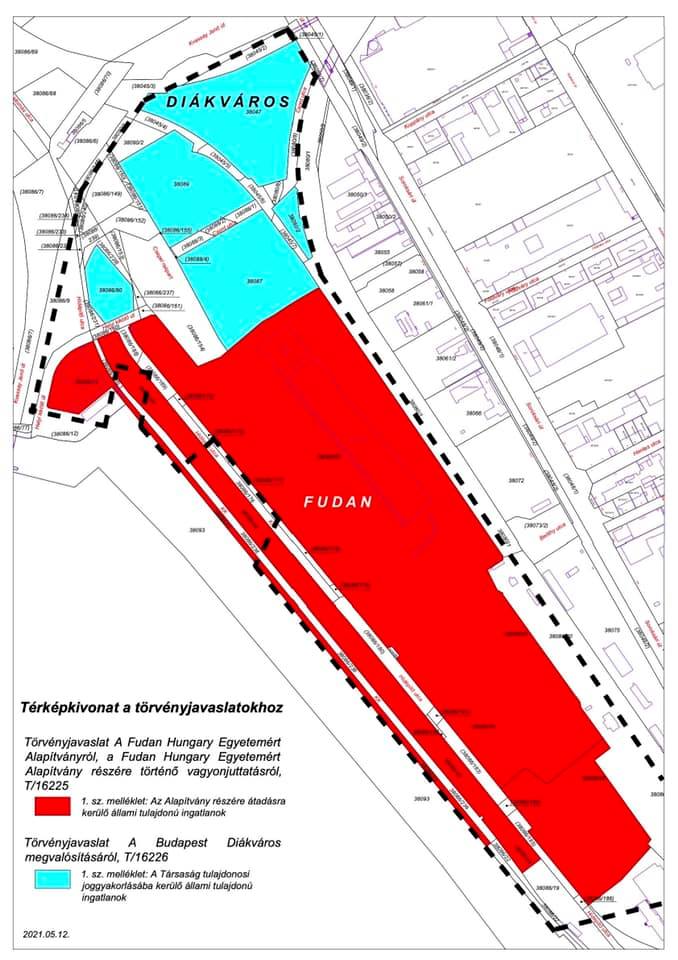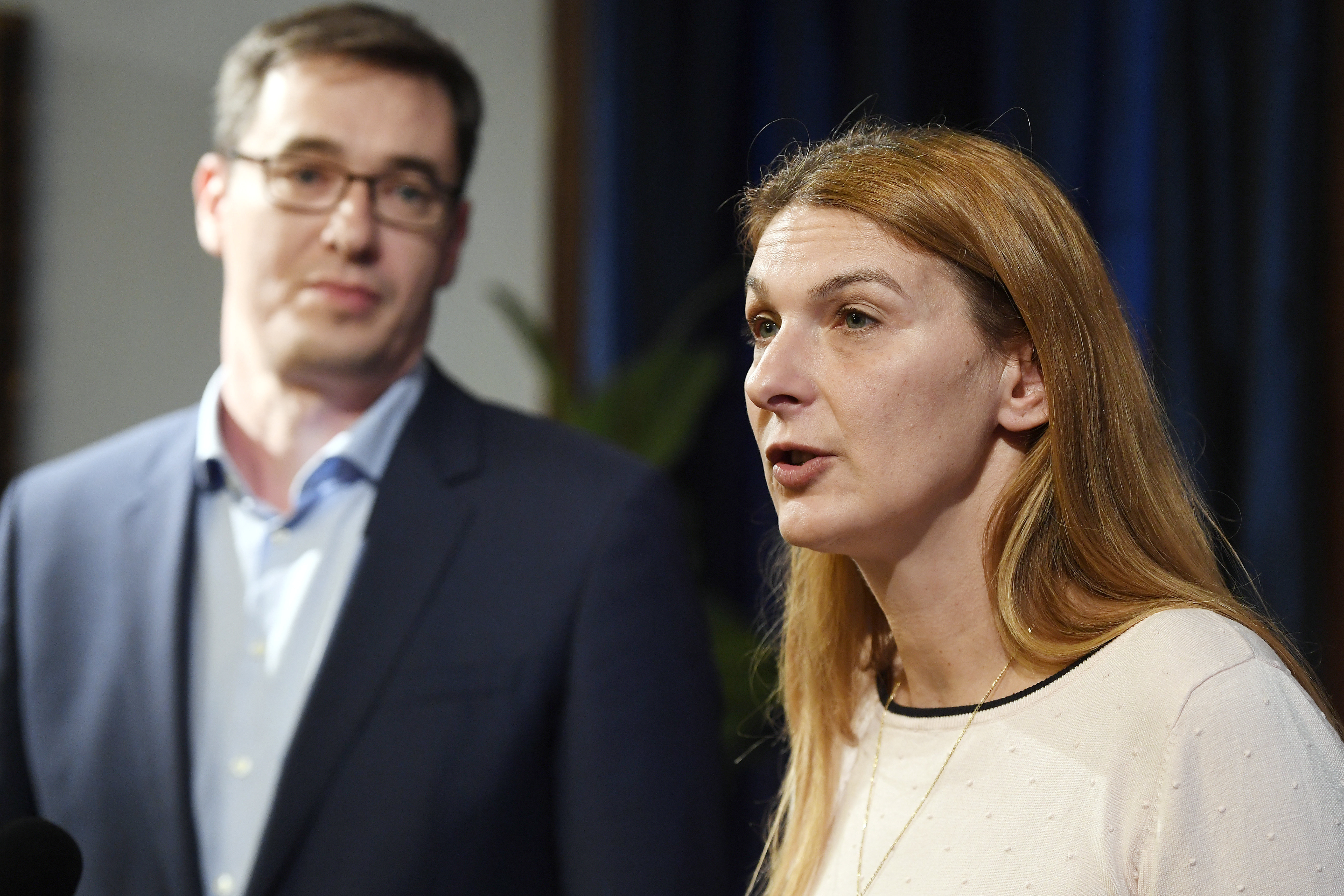New bill could wipe out Hungary's social housing stock
- Stay updated on the latest news from Hungary by signing up for the free InsightHungary newsletter:
A bill submitted late Tuesday by a Fidesz lawmaker would amend Hungary's housing law to allow for state-owned or council apartments to be purchased by tenants at huge discounts, a move that could largely eliminate existing social housing stock while primarily benefiting wealthy renters and investors.
The proposal would allow tenants who have had a rental contract since at least December 31, 2020 to purchase council housing at only 30 percent of the property's market value. An additional 1 percent discount would be added for every year the tenant has been in the property up to 15 years, meaning some tenants could pay only 15 percent of market value.
Further, those who can purchase the property in a single payment must only pay 70 percent of the discounted price, giving some tenants the opportunity to purchase apartments for 10.5 percent of their market value.
The changes would bring the greatest benefit to wealthy tenants of valuable council properties in Budapest's Castle District, where earlier district leadership concluded highly discounted rental agreements with numerous government-tied figures. Minister of Innovation and Technology László Palkovics, for example, rents a 64-square-meter apartment in the Castle District for HUF 55,000 (€154) per month.
Under the provisions of the bill, the tenant of an apartment worth HUF 50 million (€140,000) could purchase it for a single lump sum of HUF 5.25 million (€14,700).
Mayor of the Castle District, Márta V. Naszályi (Dialogue), said the changes would entrench housing poverty in Budapest and take away assistance from those who need it the most.
“This law would eliminate the municipal housing stock, making it impossible for districts and cities to help people who would never have access to housing otherwise," she said. "From now on, local governments will have no interest in building homes and renting them out to those in need, because the government can take them away at any time.”
Other critics said that poorer tenants would likely seek to purchase apartments using their savings or by taking out a loan, but would have no additional funds for renovation or upkeep, and would soon have to re-sell the properties for low prices to real estate speculators and investors, permanently shifting poor people out of the social housing system.
"This is the most damaging housing policy decision of the last decade," András Pikó, mayor of Budapest's 8th district wrote on Facebook. "This is the launch of a new robbery of privatization which will eventually result in an army of [government-tied figures] gaining access to downtown and other valuable properties at depressed prices."
Hungary's government poised to force through Chinese university plan
Two draft bills submitted to Hungary's parliament late Tuesday validated fears by opposition politicians that the Fidesz government plans to force construction of a Chinese university campus in Budapest at the expense of earlier plans to build a students' quarter.
According to the proposal, the first Chinese university campus in Europe, Fudan Hungary University, will be constructed on 26 hectares of state-owned land along the Danube River which was previously set aside for a "Student City" which would provide affordable housing and recreational facilities for up to 12,000 university students. The plan for the Student City was earlier agreed to by the government's own Budapest Development Center, Budapest City Hall and political leadership in the city's 9th district.
But the new draft proposal, which will almost certainly be passed by the Fidesz-KDNP supermajority in parliament, contradicts earlier promises by governing party politicians that the Student City could still be built at its planned proportions alongside the Fudan campus. The university will occupy nearly the entire area, and the Student City will be shrunk to one-fifth its original size.
Similarly to an earlier move that placed many of Hungary's public universities under the control of quasi-private foundations, the law would create a new foundation to run Fudan Hungary University and endow it with state assets including the 26 hectare property along the Danube previously planned for the Student City. A Norwegian planning firm was earlier enlisted to develop detailed plans for the sustainable, modern student district, but these plans will have to be thrown out if Fudan is awarded the territory.
The bill would also designate the project "an investment of high public interest," exempting it from numerous construction regulations and making it impossible for the city or district to influence what is built on the site. This would also place obstacles before plans to hold a local referendum on the construction of the university, something 9th district mayor Krisztina Baranyi said will still take place despite the legislation.
According to an investigation by Direkt36, the government estimates the cost of building Fudan University at €1.5B (HUF 540 billion). The project would utilize largely Chinese building materials and Chinese labor, and would be primarily financed with a loan from a Chinese bank. The land for the site will be provided free of charge by the Hungarian government. The investigation also raised concerns over potential national security risks posed by the establishment of the campus.
Budapest mayor Gergely Karácsony, who has vocally opposed the plans to build the Fudan campus, wrote on Facebook on Wednesday that his administration would not allow the plans to go forward, and that "we won't let go of a single square centimeter of the Student City."
Hungary blocks EU statement criticizing China on Hong Kong
Germany's foreign minister on Monday slammed Hungary for what he called its "absolutely incomprehensible" decision to block a joint European Union statement criticizing China for restricting democracy in Hong Kong.
“This is not the first time that Hungary has broken away from [the EU’s] unity when it comes to the issue of China,” Heiko Maas said after a Monday meeting of the EU's Foreign Affairs Council, which failed to pass the resolution after Hungary's veto.
It was the second time in several weeks that Hungary blocked approval of an EU statement on China's implementation of its National Security Law in Hong Kong. In mid-April, Hungary blocked an earlier version of the resolution, saying the EU "already has too many issues with China," according to a senior EU diplomat.
The latest version of the statement, which requires unanimous support for approval, was watered down in an effort to garner Hungary's support after its previous veto, according to Politico.
“I think everybody can work out for themselves where the reasons are — because there are good relations between China and Hungary,” Maas said, referring to warming ties between Budapest and Beijing within the framework of China's Belt and Road Initiative and the 16+1 investment initiative which includes 16 Central and Eastern European countries including Hungary.
On Tuesday, Hungarian news agency MTI quoted Hungary's foreign minister Péter Szijjártó as saying it was "pointless" to issue another statement or resolution on China, since of the eight statements issued so far, "none has brought change or positive progress."
In between the two meetings of the EU's foreign ministers, Prime Minister Viktor Orbán spoke to Chinese President Xi Jinping, where the two leaders emphasized their commitment to friendly relations and bilateral trade. Orbán later wrote on Facebook that he had accepted an invitation from Xi to Beijing, but did not provide details on when he would make the trip or what would be discussed.
In March, the EU passed sanctions against several Chinese citizens and entities over human rights abuses against the country's Muslim Uyghur minority. Following the passage of the sanctions, Szijjártó called the move "pointless, pompous and harmful," and accused the EU of attempting to draw attention away from "the real problems, such as the botched vaccine procurements."
Vaccination drive slows as "immunity certificate" holders gain privileges
The pace of Hungary's Europe-leading vaccination campaign has dropped dramatically in the first two weeks of May as the number of available vaccines now exceeds the number of those registered to receive one. On May 3, the seven day rolling average of first-dose vaccinations was 67,000, but dropped to less than half that one week later.
This phenomenon is common among countries that have vaccinated a relatively high proportion of their populations: as more of those adults that are eager to be vaccinated receive jabs, those that are left are more difficult to reach. In Hungary, 51 percent of adults have registered for vaccination, and polls by the Central Statistical Office show that 67 percent of adults say they will or probably will receive a vaccine.
In an effort to maintain the growth in the number of vaccinations and use up growing reserves, Hungary's government has allowed residents to make online appointments to receive either Sputnik, Sinopharm or AstraZeneca vaccines. However, appointments cannot be made to receive the two most popular jabs, Moderna and Pfizer-BioNTech.
The inoculation of 16 and 17 year old minors will also begin this week, and vaccination has begun of foreign residents of Hungary, both steps that will increase total inoculations.
Still, at the current rate, it could be months until Hungary reaches the 70-80 percent immunity thought by some scientists to be the key to ending the pandemic. One method of increasing vaccine acceptance has been the introduction of an "immunity certificate" for those that have received at least one vaccine dose or recovered from Covid-19.
Holders of the plastic card may enter indoor dining rooms and visit hotels, sporting events, museums, spas, cinemas, theatres, zoos, libraries and other recreational venues. Hungary's government has also concluded bilateral agreements with seven countries on mutually accepting each others' vaccination cards, allowing travel to and from those countries. As the number of privileges for card holders increases, those who have not received a vaccine may find the incentives outweigh their reservations.
However, some early signs indicate that travel with Hungary's immunity cards could face complications. After completing a bilateral travel agreement with Croatia, that country's officials indicated that Hungarian visitors must present both their plastic card and a paper certificate received from the doctor that administered the shot. Additionally, the country will only permit those to enter for whom 14 days has elapsed since receiving their second dose.
Furthermore, Germany's health minister Jens Spahn announced this week that only those who could prove they'd been vaccinated with a jab approved by the European Medicines Agency could enter Germany without quarantine. This would affect the millions of Hungarians that have received Russia's Sputnik V or China's Sinopharm jabs, neither of which have received EMA approval.







